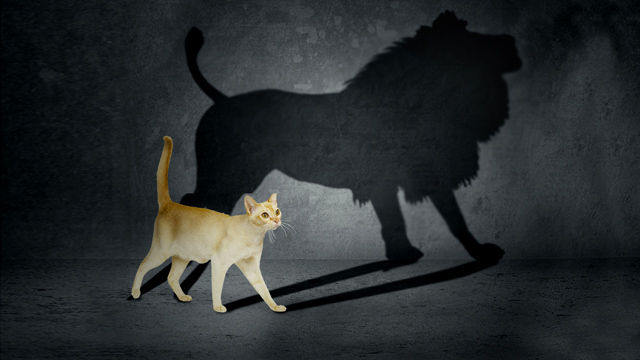
When we talk about what is real, what do we mean?
A strict materialist asserts that only observable and measurable phenomena, such as matter and energy, can be real. Meanwhile, believers in spiritual or religious traditions would argue that their practices have real and observable – if subjective – effects. A philosopher might propose that the idea of reality is meaningless: to call something “real” is to distinguish it from the unreal or illusory; if there is such a thing as an illusion, it exists and is therefore also real.
Perhaps reality is not quite as simple as we think.
Even our strict materialist would hardly deny the reality of the economy, democracy, or sadness. These ideas are considered real because they have effects that can be observed in material terms. But even if we limit our definition of reality to the material, we still have problems.
Our perception of the material world is constrained by the limitations of our physical senses. The same material world seems very different to other kinds of creatures who possess different sensory equipment than ours. We have invented microscopes, X-ray telescopes, infrared cameras, and spectroscopes to expand our ability to perceive the world, but only in a limited and focused way, and for a few of us at a time. Most of us perceive very little of all there is to know about our physical surroundings.
So far, we have established that reality – even using the most conservative definitions – is mostly unknown to us, but also largely unknowable. And yet, reality is not something that many of us question at any given moment. The world is similar enough to most of us that we agree on the stability and predictability of those features we can perceive.
All this gets us no closer to anything useful. If we can’t say anything meaningful about reality – if the only definition of reality is that it is real – then it may prove more useful to examine what reality is not.
What we know and what we perceive are not the same things. But all of our most reliable knowledge, all of our most verifiable perceptions, are a tiny part of All That Is; this cannot be denied. So it is accurate (and maybe a bit troubling) to admit that reality is NOT whatever I think it is.
This is not to say that all of my perceptions are wrong. They are accurate enough to keep me alive and interacting in meaningful ways with other people and with my general environment; in a practical sense, my perceptions are sufficient. When compared with All That Is, they are just so very limited, providing the merest glimpse, as if I were watching a room through a keyhole.
Whatever reality is, we can be sure that nobody comprehends the totality of it; indeed, it is not possible for a finite being to do so. This immediately creates a dilemma with regard to absolutist world-views, for example fundamentalist theologies that claim not only to possess perfect truth (usually based on a literal and socially reactionary interpretation of a traditional sacred text), but claim moreover that any alternative text – or even an alternative reading of the same text – is false and evil. There is a certain logic to this, albeit twisted: absolute Truth cannot change, because if it does, it either was not absolutely true before the change, or else it is no longer absolutely true afterwards. Of course, the flaw in this logic lies with the assumption that a finite human being can ever comprehend absolute Truth in the first place.
Any idea that cannot allow itself to be questioned is not worth the time to argue. If the history of human culture teaches us anything, it should be that understanding improves by gaining new perspectives. Our knowledge of the natural world has advanced precisely because the search for knowledge (which we call science) is done in a context of rigorous questioning, restriction of variables, testing of hypotheses, and ruthless peer review. In times and places where questioning the orthodoxy is discouraged or punished, science stagnates or becomes cancerous, as in the cases of Drs. Lysenko and Mengele.
We will never know all there is to know; none of us will ever possess a complete and infallible understanding of reality. What we can know beyond a doubt is that we will always have much more to learn, and if we have the courage and take the time to see the world from a different perspective, our understanding will improve. Exploring even illogical or toxic world-views, like religious extremism or fascism, tells us something about the world we live in – if only to become aware of how dangerous it is to accept claims of absolute knowledge.
Reality, in terms that are practical for us finite human beings, is what we build together; and we do best when we work in mutual interest and accord.